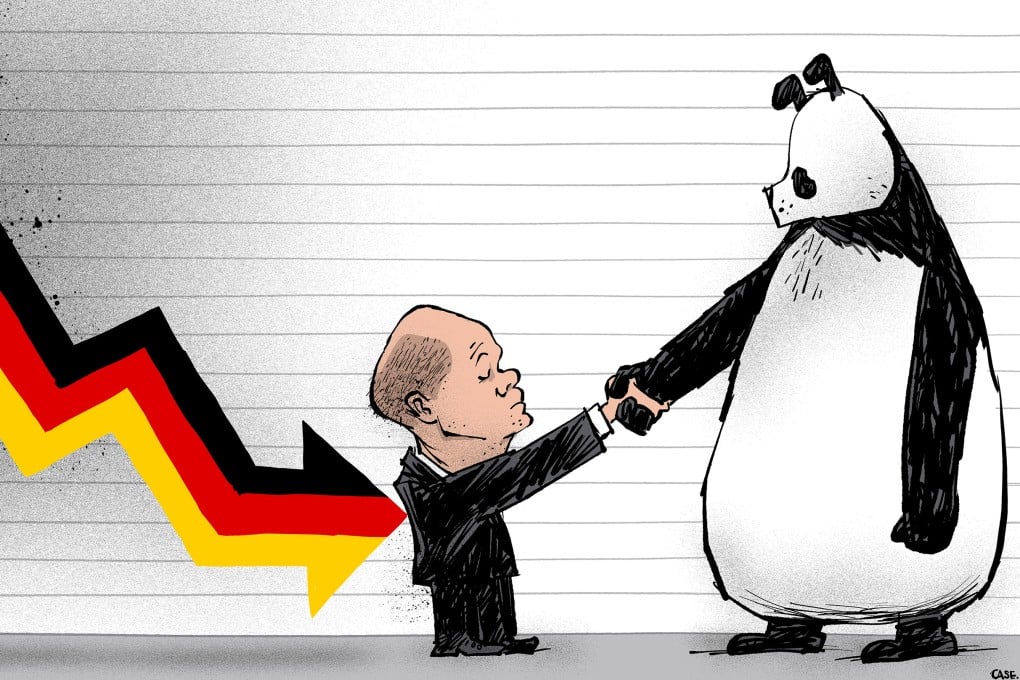Advertisement
Opinion | Why Germany has little choice but to continue to cosy up to China
- The ugly truth is that the power of Germany’s economy is heavily connected to its business relationship with China and, with that, Scholz’s political fortunes
Reading Time:4 minutes
Why you can trust SCMP
13

Whether Berlin would walk back economic relations with Beijing has been the subject of heated debates over the past few years. However, Chancellor Olaf Scholz’s visit to China this week shows that realism and a self-survival instinct continue to trump idealism in geopolitics – even in Germany.
Scholz ended his three-day visit on Tuesday with a private meeting with President Xi Jinping in Beijing. Beforehand, Scholz said there was a lot to discuss, especially how Xi could “contribute more to a just peace in Ukraine”.
“The Russian war of aggression against Ukraine and Russia’s rearmament have had a very significant negative effect on security in Europe,” Scholz said at the meeting at the Diaoyutai state guest house. “They directly affect our core interests.”
Xi mainly repeated well-known phrases. “Together we can breathe more stability and security into the world,” he told the chancellor – and said China was not involved in the Ukraine crisis.
But the real message of the trip was somewhat different. Despite Germany’s China strategy published last year – in which Beijing is defined as a partner, competitor and systemic rival – and despite public criticism of Beijing on Taiwan and human rights, as well as talk of “de-risking”, a fruitful economic relationship with China has been and remains Germany’s main focus.
Xi’s remarks that Sino-German cooperation was not a risk, but an opportunity, will have been music to Scholz’s ears.
Advertisement
.jpeg?itok=HjPEnbzk&v=1747124063)
.jpeg?itok=HjPEnbzk&v=1747124063)